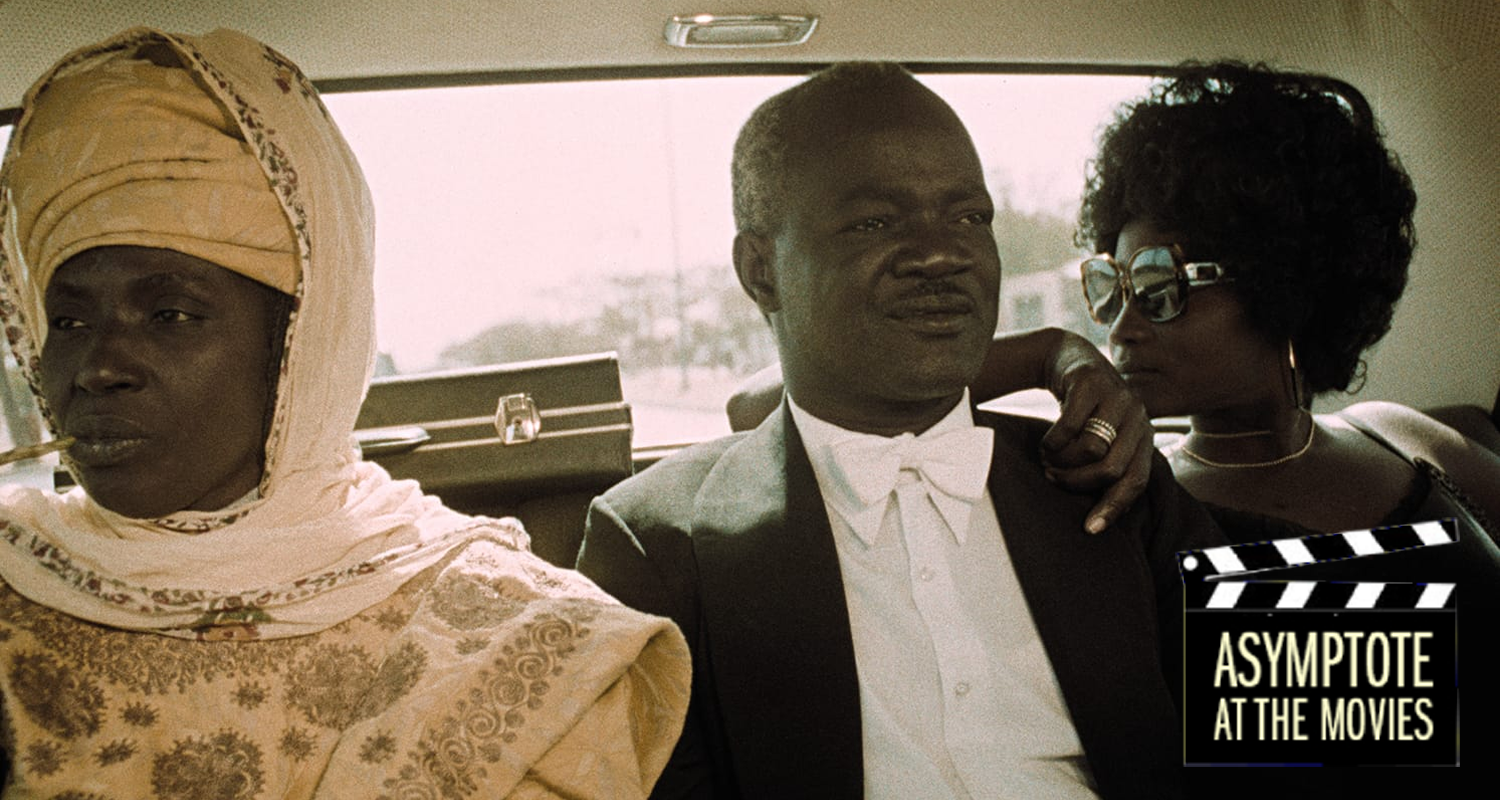In 1973, author and director Ousmane Sembène published Xala, a searing, polyvalent satire on post-independence Senegal, interrogating the shifting interpretations of tradition and postcolonial modernity, the corruption of new governing bodies, and the inherent divides that are further deepened by varying expectations of a liberated future. Two years later, he would direct the film of the same name, portraying the arrogant businessman El Hadji Abdoukader Beye, who experiences a bout of incurable erectile dysfunction on the eve of his third wedding. Juxtaposing multiple sociopolitical positions—from the rich to the poor, the radicalised to the subservient—the two works target the brute alienations brought on by occupation, resulting in an incisive condemnation against social inequality. In this edition of Asymptote at the Movies, we take a look at the ways the text and the film play against one another, coming together and diverting against the same incendiary narrative.
Vincent Hostak (VH): Perhaps aware that Xala as a novel would reach a global audience, Ousmane Sembène seems to go out of his way to frame cultural references with parenthetical asides in service to the global reader; they punctuate the text with explanations of Africanity, Muslim customs, traditions of polygamy, and idiomatic language. In the film, these textual remarks are translated with a specialised cinematic grammar, using numerous audio and visual cues to satirise the state of many in the “new Africa.” Early in the film, the “Businessman’s Group,” as they are known in the text, are seen arriving only in an extreme close-up of their European shoes. Synchronously and wryly during this collection of scenes, African identity is reinforced with the audible chants of griots, trilling ululations, and Mbalax-style band music. Statements are coded into image, sound, costume design, if not direct dialogue, and through them, the viewer learns that colonial behaviors are stubborn and seemingly unerasable, even as the Business Group make a rite of casting out the art and properties of the former white leadership on the steps of the chamber.
As sure as El Hadji thinks he is “cursed” with the titular impotence of “xala,” he and his fellow citizens of a newly free Senegal are cursed by the remnants of colonialism. In the film, this is coded through European dress among the tuxedo-clad men (while women characters are more traditionally dressed), the protagonist’s copious gifts to his third wife, and an air of acquired indifference—transmitted in gestures and facial expressions of the actors. Only the beggars, a servant class, and the film’s women are dressed in apparel that indicates authentic origins and culture.
As original as Sembène is, I think certain contemporaneous satiric films may have influenced his choices, and I find it unavoidable to cite the work of another filmmaker with a revolutionary spirit: Luis Buñuel. Especially poignant in this regard is the black comedy, The Discreet Charm of the Bourgeoisie. It similarly portrays callous, regional aristocrats in various comic visual tableaux (including, famously, recurring scenes of the self-important protagonists briskly walking the countryside, accompanied by close-ups of their gestures of indignation). It also recounts a party ending with a violent act, staged by complainants, and which results in the execution of the insufferable principals. Sembène echoes the latter with less explicit violence in the surprising ending of Xala, in which El Hadji Abdou Kader Beye and his family are sentenced to a ritual humiliation by the city’s beggars.
Nestor Gomez (NG): In a 1974 interview with the Tunisian film critic Tahar Cheriaa, Sembène shared that he intended his film not only for Senegal but for the entire Third World. Xala is an allegory to cultivate awareness about the bourgeoisie, a new group of individuals rising to power in African society, and the title of both the film and the novel is meant to highlight the fact that this bourgeoisie is impotent and unable to create anything meaningful. READ MORE…

